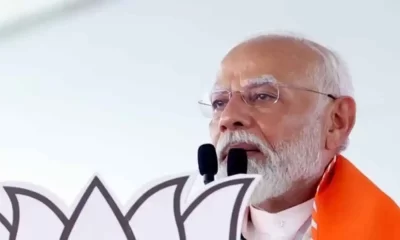Book reviews
Eat Indian, the new health mantra
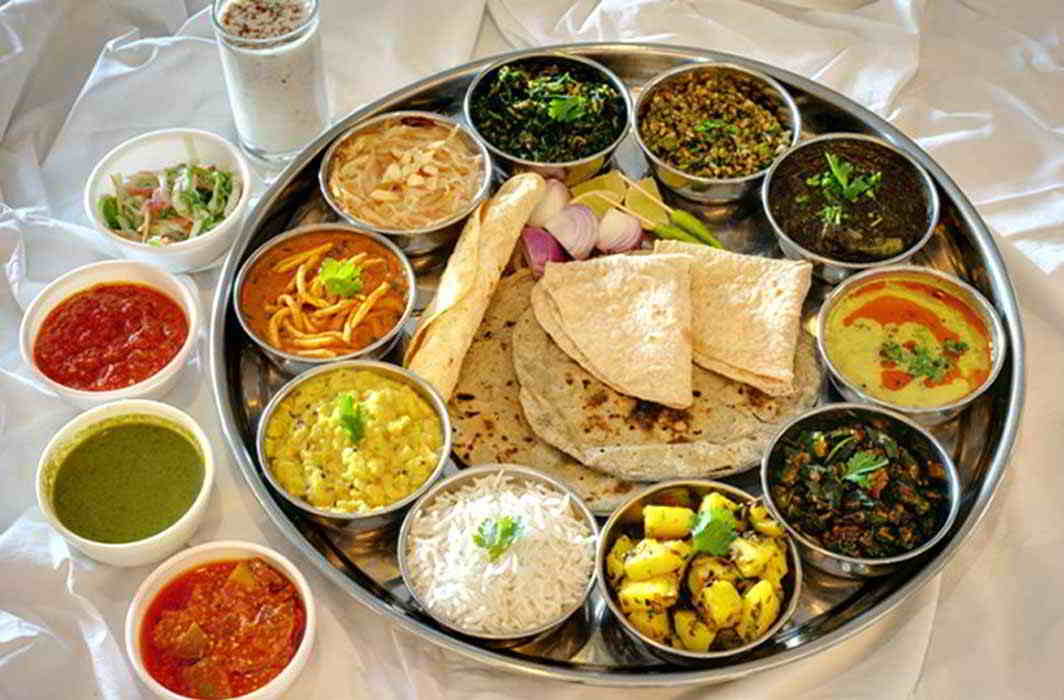
[vc_row][vc_column][vc_column_text]Shilpa Shetty Kundra and nutritionist Luke Coutinho’s book The Great Indian Diet – Busting the fat myth tells us that there’s no need to look beyond borders to tailor the perfect diet
By Niti Singh Bhandari
Increasingly people are getting more and more aware about illnesses and their relationship with what we eat. All the delicacies consumed by us are converted into their basic components of carbohydrates, fats, minerals, potassium, magnesium, sodium, albumins and so on for the body to perform various functions. An imbalance in any one compound, mineral or vitamin manifests in the form of serious illnesses.
This is why the approach to food needs to be holistic and well-informed, and we must think before we jump onto the bandwagon of any food diet that is restrictive in its outlook. Also, for diets to be long-lasting, you need to relish your food and have enough for your body to feel satiated.
Accomplished yoga practitioner, actress, businesswoman and full-time mother Shilpa Shetty Kundra joins hands with her nutritionist, Luke Coutinho, who is also a fitness expert and cancer specialist, to debunk food myths and fad diets in her first book, The Great Indian Diet – Busting the Fat Myth, that promotes traditional Indian food and ingredients easily available in the Indian kitchen.
There is nothing in the Indian diet that is not healthy, and interest in foreign foods is in fact putting on our plate all that can mess with our body. The further the food is from the farm to the kitchen, the more damages it causes to us. Out goes wonder food quinoa—and others food fads promoted in the West—in favour of food that is locally grown and produced. An anecdote early on in the book concerning film actor Madhavan—who had visited a famous food camp in Austria, only to be told by the nutritionist to go back to India and consume the traditional Indian diet—puts things in perspective.
“Many Indian foods, especially whole grains, lentils, legumes, nuts, lean vegetables and healthy fats do not rapidly spike insulin levels, and instead convert your body into a fat-burning machine,” writes Shilpa. Ghee belongs to this category of fat-burning food, and Shilpa writes down her own recipe of making ghee, which should be handy for the next gen, although many Indian households have elders who have been making ghee at home.
Depending upon your age, weight and sex, the minimum daily energy requirement for an adult human being is 1,200-1,800 calories, and the book lists out non-veg and veg meal plans for this.
At the heart of the book is an impassioned plea inspiring Indians to eat more and more healthy locally-grown food. By glorifying all ingredients commonly available in the Indian kitchen, and by enumerating the essential benefits of the spices and the food combos cooked in Indian homes, the book’s commonsensical approach is appealing.
Expect to get more knowledgeable about the Indian food ingredients by reading the book. However, for specific queries like how much of egg yolk to have (which the book strongly recommends!) is something that can be answered by only a personal consultation. At one point, the book rubbishes the benefits of soya, and strangely, elsewhere recommends soybean oil and soy foods. Also too much is made out of the art of visual realisation. It is good to remain positive at all times, though the idea that by imagining a perfect body we shall achieve that by not laying serious emphasis to what we put on our plate is rather over-optimistic.[/vc_column_text][vc_column_text]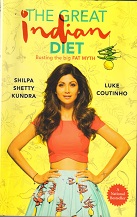
The Great Indian Diet – Busting the fat myth
Author: Shilpa Shetty Kundra and Luke Coutinho
Publisher: Random House India
Printed pages: 180
Price: Rs 299[/vc_column_text][/vc_column][/vc_row]
Book reviews
The Sattvik Kitchen review: Relook at ancient food practices in modern times
If you are the one looking to embrace healthy food habits without compromising on modern delicacies, then this book is a must read!
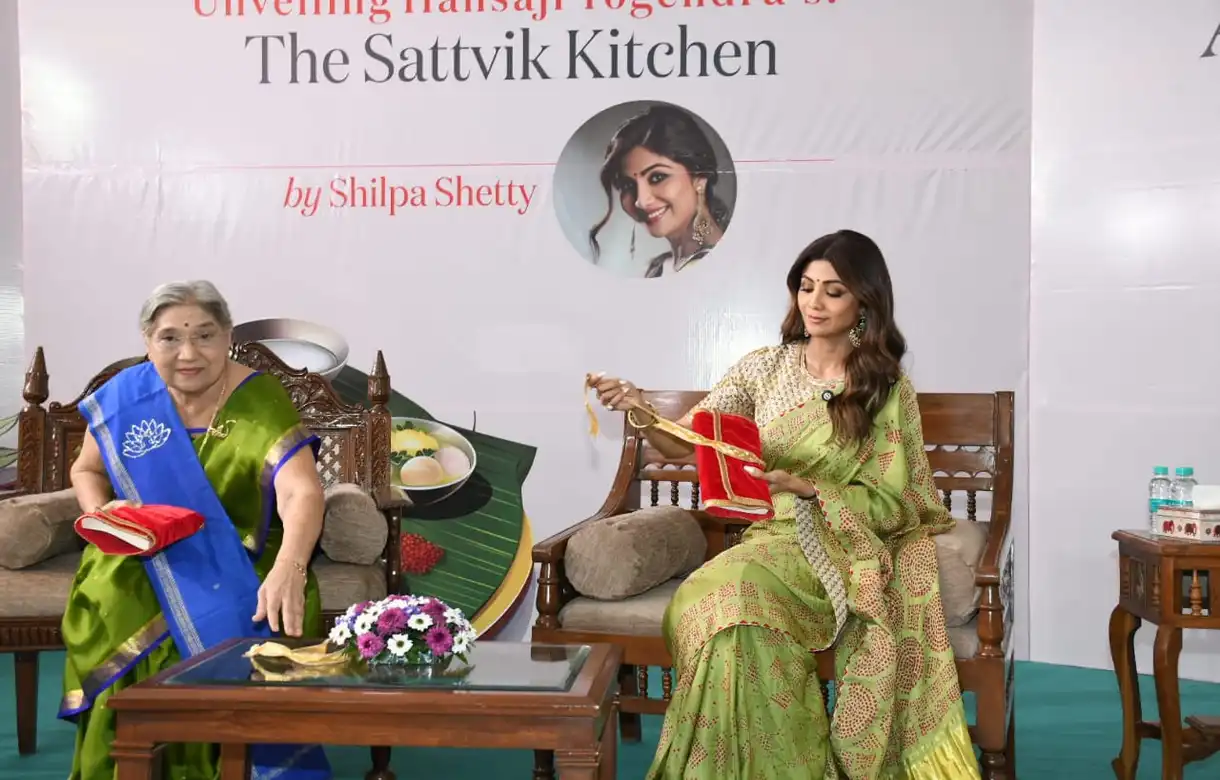
The cacophony of bizarre food combinations across the streets of India has almost taken over the concept of healthy food practices. Amid this, yoga guru Dr Hansaji Yogendra’s The Sattvik Kitchen, published by Rupa, is a forthright work that takes you back to ancient food practices and Ayurveda.
As the subtitle reads, The Art and Science of Healthy Living, the book endows a holistic approach to ayurvedic diet along with modern evidence based nutrition. From Basil-Broccoli Soup to Sprouted Green Gram Salad and Strawberry Oats Smoothie to Mixed Dal Parathas, the book not only provides you with the recipes but also stresses on healthy cooking tips together with nutritional benefits.
Besides, Dr Hansaji Yogendra’s book emphasizes on the traditional methods of food preparation and the advantages of using traditional cookwares like iron and copper vessels. The narrative portrays a balanced approach, knitting traditional wisdom with contemporary scientific understanding.
The author, through her book, sheds light on the principles of Ayurveda and highlights the metamorphic potential of adopting ancient food practices. She explains how our body reacts to food in terms of timing, quantity, manner of consumption and seasonal considerations. The book adeptly reintroduces ancient home remedies tailored to address various contemporary health issues.
Dr Yogendra, in her book, decodes the importance of nutritional knowledge to optimize both immediate and long-term health outcomes. It provides deep insights to understanding the intricate relationship between food choices and overall well-being, weaving Ayurveda with practical perception.
The book not only celebrates food philosophy but also offers a practical view into weight loss, well-being, and the profound impact of dietary choices on both physical and emotional aspects of our lives.
If you are the one looking to embrace healthy food habits without compromising on modern delicacies, then this book is a must read! The book is a roadmap to navigate the challenges of the modern day kitchens.
Book reviews
The Deccan Powerplay review: Bashing Chandrababu Naidu and his legacy
Amar Devulapalli’s book The Deccan Powerplay cornersthe TDP strongman with every petty incident exaggerated a la Baahubali
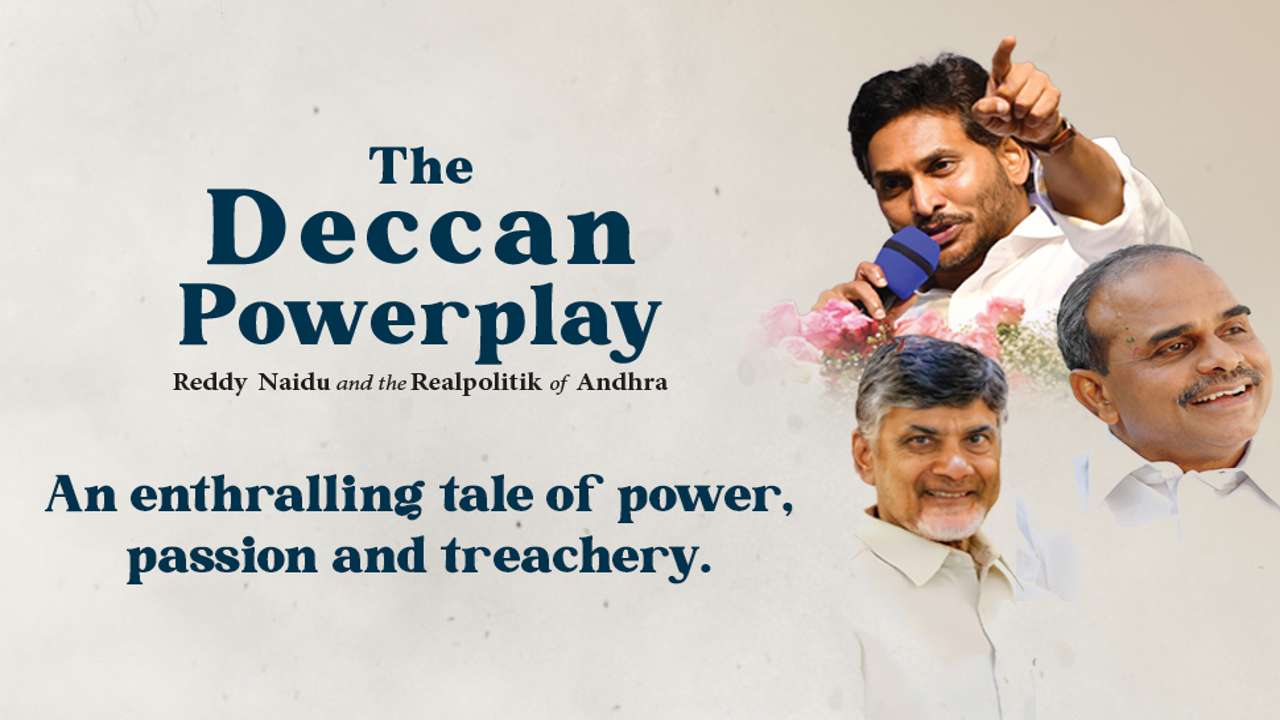
Mike Marqusee’s War Minus The Shooting is a seminal book on cricket and its influence on culture and politics in the Indian sub-continent during the 1996 Cricket World Cup. Amar Devulapalli’s book The Deccan Powerplay, published by Rupa, sounds like a similar exercise with its clear subtitle, “Reddy, Naidu and the Realpolitik of Andhra Pradesh“. The ambitious sounding subtitle crumbles under the weight of belied expectations of a scholarly treatise on the political interplay between the Reddys, the Kammas and the erstwhile united Andhra Pradesh. One can blame it on one’s own hopes and excuse the author of the lapse since the book has just three people to discuss: YS Rajsekhara Reddy, N. Chandrababu Naidu and Y.S. Jagan Mohan Reddy.
The chief protagonists here are YSR and his son, the incumbent Chief Minister of bifurcated Andhra Pradesh, Jagan Mohan Reddy. The lone villain, and one crafty as a fox if ever there was one, is Chandrababu Naidu. The book devotes a chapter to the corruption cases against Naidu, for which he was arrested in September 2023.
In crafting the narrative, the other heavyweights of Telugu country are discussed in passing, as peripheral players. N.T. Rama Rao does get the starring role, as befits the Telugu star of yesteryear and the founder of the Telugu Desam Party. But even this is fleeting. The Congress, which ruled the state till bifurcation, is portrayed as a faction-infested animal — so what if YSR stayed in the party both as loyal soldier as well as a seasoned yet dynamic general?
The book sets out to demolish the halo surrounding Naidu as the man who brought Information Technology majors to Hyderabad, nay Cyberabad, by beating Bengaluru. His breaking with NTR is depicted as a shrewd, calculated gambit to displace the TDP founder, who was also his father-in-law.
The book is replete with this and more Naidu nitpicking. Naidu took no bullshit from politicians or journalists. He gave it back to the scribes when needed, apart from his favourite media groups, one of the reasons they were not very happy kowtowing to him,
as the book suggests. Instead they would make ostentatious bows to any political alternative merely for being less brusque than the now-out-on-bail former CM.
The book picks apart every claim Naidu ever made and portrays him as an opportunist. The problem with this is possibly because Naidu preceded Jagan Mohan as the rump AP’s last CM and had presumably used every trick in his arsenal to discredit the younger contender.
With Assembly elections due this year, this book reads like a party pamphlet and comes across as a political weapon among the undiscerning. An Instagram handle could have been more useful to this end. But for such a grandly-titled book: the anticlimax is swift and painful.
Book reviews
Fawaz Jaleel’s Nobody Likes An Outsider wins India Prime Authors Award
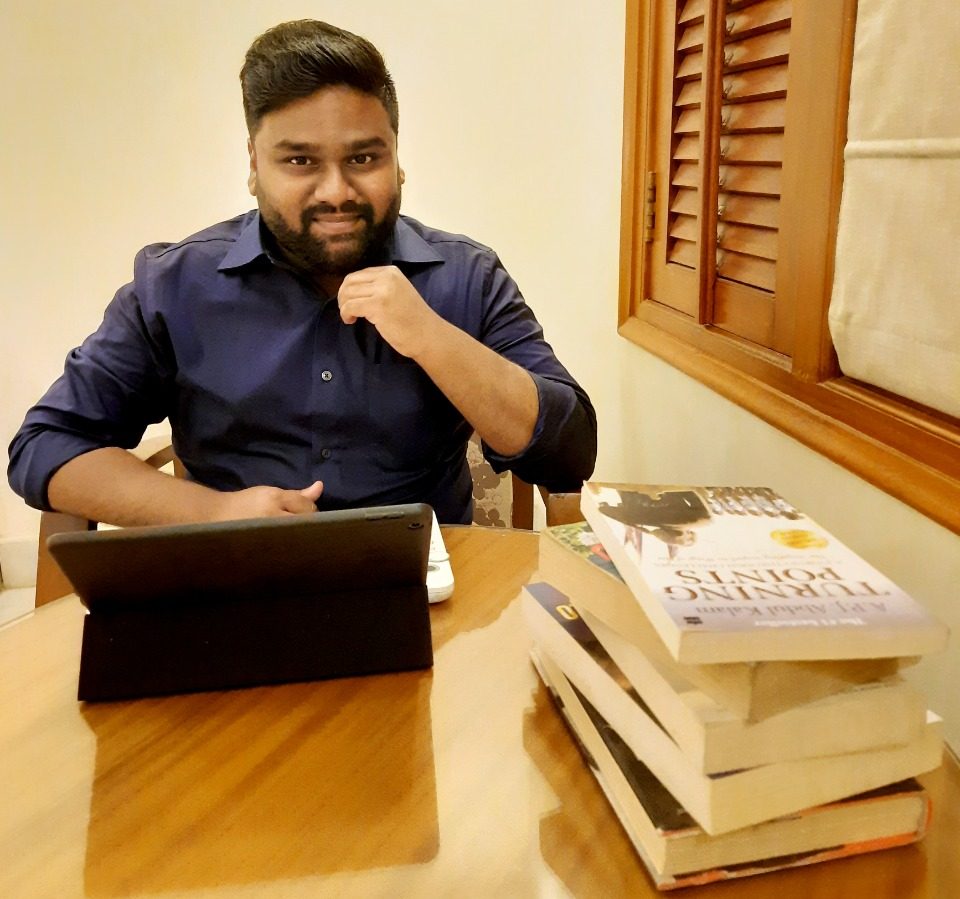
Indian thriller author, Fawaz Jaleel’s Indian political thriller, Nobody Likes An Outsider hit the market in March 2021. The book has been receiving rave reviews from both readers and critics since its release. Now, the book has got another achievement in the form of Foxclues India Prime Authors award.
Set in Begusarai, Nobody Likes An Outsider traces the death of a young Indian politician and his personal assistant. A young CBI team led by Yohan Tytler is called to investigate the murder. The book travels between 1970’s to 2020 across significant events that took place in the modern history of India and Bihar. The climax reveals a very sensitive yet lesser spoken about aspect in Indian politics and demographics.
This is Fawaz Jaleel’s debut novel. However, he has written three short stories in the past – From The Land Of Palaces, The Legend of Birbal’s Bull, and Alternate Identities. These stories were published in anthology books by Write India publishers and Juggernaut.
Foxclues received more than 3000 nominations for the award out of which Nobody Likes An Outsider made the cut. The book has also been optioned by a Mumbai based production house to be converted to a series. Presented by delhi-based publishing house, Kalamos, Nobody Likes An Outsider continues to attract a good readership.
Born in Vilakkudy Kerala, Fawaz Jaleel did his schooling in the island nation of Bahrain before moving to Chennai for his post graduation. He completed his graduation in Journalism from Madras Christian College and post graduation in Development studies from Azim Premji University.
The sequel of Nobody Likes An Outsider is set to be released in 2022. Currently, Fawaz is working on another political thriller series based on geopolitical events with a focus on Indian politics. He also has a comedy-thriller about India’s housing market set to be released in the coming year.
-

 Entertainment24 hours ago
Entertainment24 hours agoDo Aur Do Pyaar social media review: Social media users say Vidya Balan, Pratik Gandhi deliver standout performances in this adorable film
-
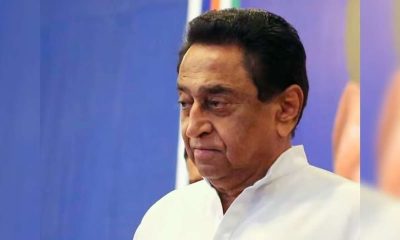
 2024 Lok Sabha Elections20 hours ago
2024 Lok Sabha Elections20 hours agoDeserted by key supporters, the Kamal Nath story looks set to wind to an end in Chhindwara
-

 Entertainment22 hours ago
Entertainment22 hours agoAditya Roy Kapur, Sara Ali Khan’s Metro In Dino to release this November
-

 2024 Lok Sabha Elections22 hours ago
2024 Lok Sabha Elections22 hours agoLok Sabha Elections 2024: Nearly 40% voter turnout till 1pm
-

 2024 Lok Sabha Elections19 hours ago
2024 Lok Sabha Elections19 hours agoLok Sabha Elections: Voter turnout 62.02% in Tamil Nadu till 5pm
-
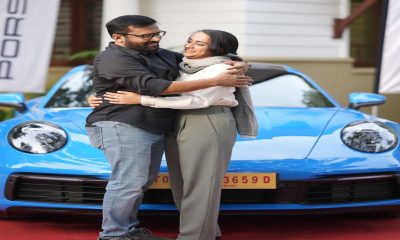
 Featured20 hours ago
Featured20 hours agoNima Sulaiman joins HiLITE Group Board, her father gifts her a Porsche
-
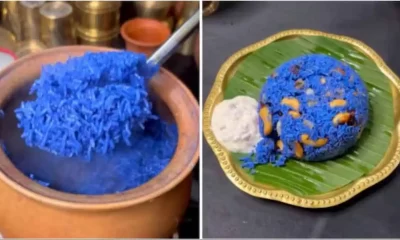
 Food21 hours ago
Food21 hours agoSocial media users stumped after food vlogger makes blue-coloured ghee rice, video viral
-

 Cricket news3 hours ago
Cricket news3 hours agoIPL 2024: Lucknow Super Giants beat Chennai Super Kings by 8 wickets








